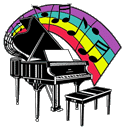
September 10, 2007

eNotes
Today's issue contains excerpts from an enlightening interview I read in my Journal of Singing magazine this month. The interview is with Simon Estes, a famous operatic bass baritone who made his professional debut in Berlin in 1965.
Question: What do you think about as you are actually performing? Can you talk at more length about your thought process in the performance itself?
Simon Estes: Text, music, and dramatic situation - I don't think about the technique when I'm singing. I'm thinking about the music, the text, and the drama, all three of those together come into the singing. But when I sing - I really mean this - I'm thinking of the joy of singing. Most of the time when I'm singing I'm not thinking about vocal technique at all, I'm thinking about the music.
Question: What is your technical approach to singing?
Simon Estes: I sing by sensation. I teach by sensation. I teach students to teach themselves, because it's their body, they're the one producing the sound and sensation. Maybe one of the reasons I know is because I am a singer and I sing by sensation in addition to some knowledge. But I think we've gone too far. We live in a highly computerized age. But I think we've gone way overboard, forgetting what is nature, what is natural.
Question: Do you consider overall physical health to be an important element of technique?
Simon Estes: Good health, whether you're an opera singer, an athlete, lawyer, or doctor, is very important. But that doesn't just mean physical health, it means mental and spiritual health as well, the body is made of all these aspects.
Question: You are known by fans of both opera and song as one of the world'g great performers, yet some readers may not know that you are also a dedicated voice teacher.
Simon Estes: Yes, and I teach with my eyes, my ears, my heart, and very little of my brain. I want students to sing with their heart - it's the thinking process that gets us in trouble or that makes us nervous.
PIANO CORNER
![]()
I want to talk to you about keyboards. Lots of you in my classes ask me to recommend a good keyboard for starting out. You say that you don't own a piano and are not ready to make such a big purchase yet. There are a lot of keyboards out there and I'd like to help you make sense of them.
First, there is a big difference between a digital piano and an electronic piano. Digitals have a better sound quality. I believe they all have the full 88 keys (like a regular piano). You're not going to have all the bells and whistles (rhythm and tone sounds)but the keys will feel like a piano's keys. There will be weight to them and they will be full-sized. Digital pianos start at $500 and go way up from there.
As for electronic keyboards, this is what you are looking for - at least 76 full size keys and touch sensitive! This means that they are not weighted BUT that you can play louder and softer. Stay away from a keyboard with less than 76 keys. It really limits what you can do and how you can embellish. I have a great keyboard - Casio, WK-3200. I paid around $250 for it at Daddy's Junky Music. If Casio doesn't have this exact keyboard anymore (I've been told they don't), I'm pretty sure that they have other very comporable keyboards. This is an excellent investment. And I was very surprised by the sound. Quite a decent sound for the money and excellent rhythm tracks to play with.
Keep checking the website www.EasyPianoStyles.com for updates on my teaching schedule and for more audio clips that I am always adding!
I will be teaching a class this fall in a yet to be determined location on "How to Accompany Yourself Singing"! I'm very excited about teaching it. It won't be at one of the Adult Education Centers. Please let me know if you are interested in possibly attending and what town you live in.
That's it for now, fellow musicians! If you have any topic you would like me to discuss in future issues of eNotes, please let me know.
Happy Fall.
Sincerely,
Debbie Gruber, B.M., M.M.